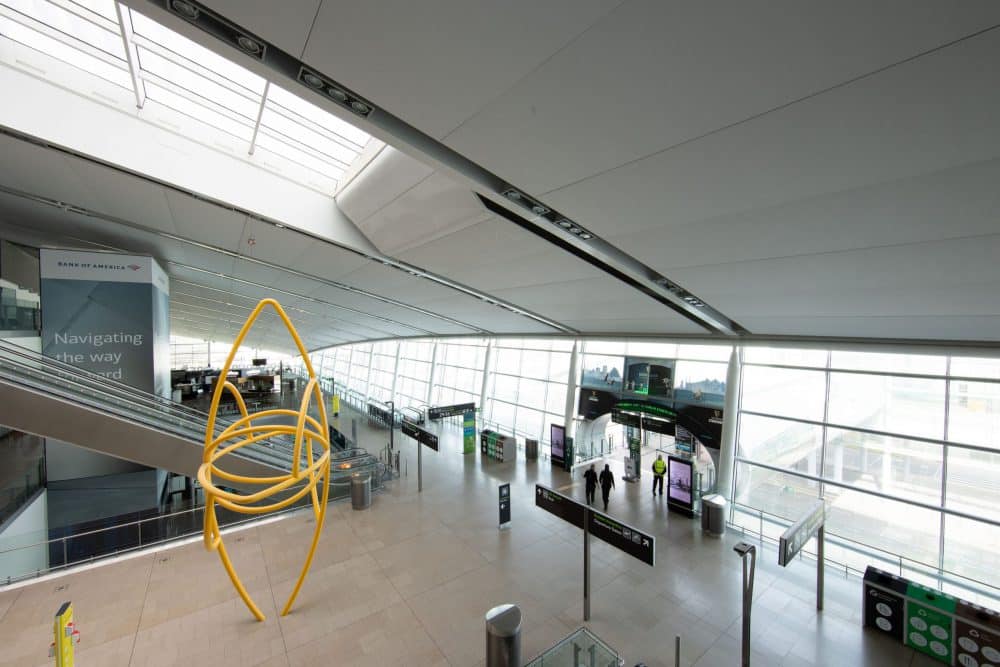
daa, which operates Dublin and Cork airports, has recorded a loss of €284 million last year due to the impact of the COVID-19 pandemic. Passenger numbers at its two Irish airports fell by 78% to just 7.9 million in 2020, compared to 35.5 million in 2019.
Turnover declined by 69% from €935 million in 2019 to €291 million last year, as the reduction in passengers across all daa’s markets led to a €644 million fall in business activity. Almost all of the airport retail outlets that daa operates in Ireland and overseas were closed for extended periods during the year.
“Our Irish airports have been one of the businesses that have been most negatively affected by the impact of COVID-19 over the past 13 months,” said daa Chief Executive Dalton Philips. “Dublin and Cork airports lost 27.6 million passengers last year, which is more than 5.5 times the population of the State. The last time that Dublin and Cork airports had fewer than 8 million passengers in a calendar year was in 1994.”
The pandemic continues to have a crippling effect on the Irish aviation and tourism sectors. In the first three months of this year, passenger numbers at Dublin and Cork airports have fallen by 92% compared to 2020, as the State’s two largest airports lost a further 5.1 million passengers.
“As vaccination levels increase, both at home and in many of our key overseas travel markets, Ireland must develop a roadmap for exiting mandatory hotel quarantine and for easing the blanket restrictions on overseas travel,” Mr Philips said.
“The aviation industry in Ireland has recently submitted a comprehensive plan to enable the restart of international air travel to and from Ireland in a manner that continues to protect public health. Having outlined our recommendations, the industry needs substantive Government engagement on this vital issue. Ireland must start planning now for putting in place a system that will allow for international travel again.”
The current position for daa businesses is very challenging, and at this point, it is difficult to make any meaningful forecasts about the outlook for the rest of this year, according to Mr Philips. “There is clearly huge pent up demand for travel, particularly to visit family and friends, but as yet, we have no clear path as to how and when Ireland will exit the current restrictions. We also need clarity on the EU Digital Green Certificate and when it will be adopted in Ireland.”
In response to the crisis, daa reduced its operating costs by 42 per cent to €260 million during 2020; with costs cut by 58% between June and December last year. Significant reductions were made to planned operational and capital spending. daa also reviewed its medium-term capital programmes and amended the delivery dates of certain projects.
Due to the significant impact of the pandemic on its business globally, daa moved quickly to reduce its costs last year. Operating costs were reduced by 42% to
Key construction projects such as the North Runway at Dublin Airport and new security screening systems for aircraft hold baggage at Dublin and Cork airports progressed during the year when permitted under health restrictions. Plans for the reconstruction of Cork Airport’s runway were significantly advanced during 2020 and into this year and daa will appoint a contractor shortly for this vital project.
Job Losses
A pay and hiring freeze was instituted, contracts were not renewed and the payment of profit share, gainshare and performance-related pay for 2020 was cancelled. These and other measures, which were required due to the grave situation facing the company, meant that people took a pay cut of between 20% and 45%. Almost 1,000 Irish-based staff have left the business, which is equivalent to almost one-third of the group’s overall workforce in Ireland. About 1,000 people have also exited the overseas retail businesses operated by the group.
“We had to take some very difficult decisions over the past 13 months, and we had to move quickly given the severity of the crisis,” Mr Philips said. “Our focus was on doing what was right for the long-term health of the business and as far as possible we worked in partnership with our people both at home and abroad.”




